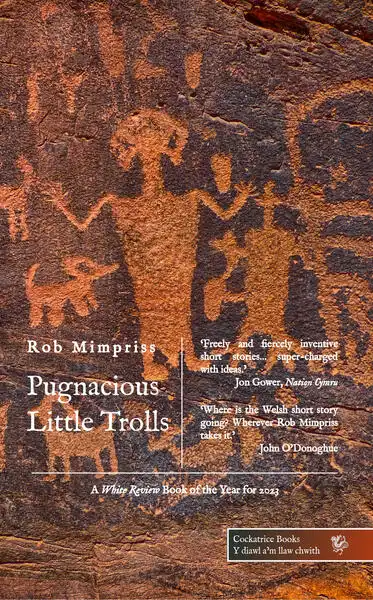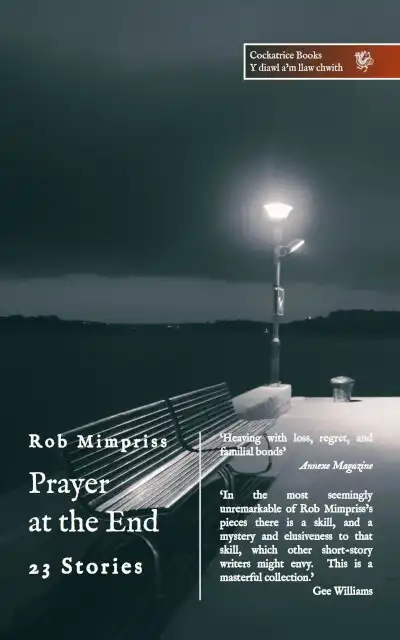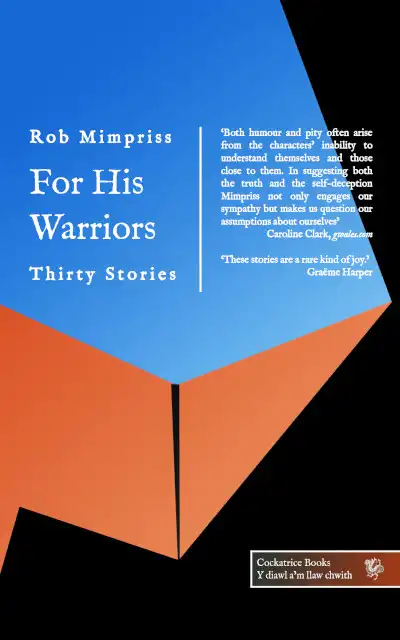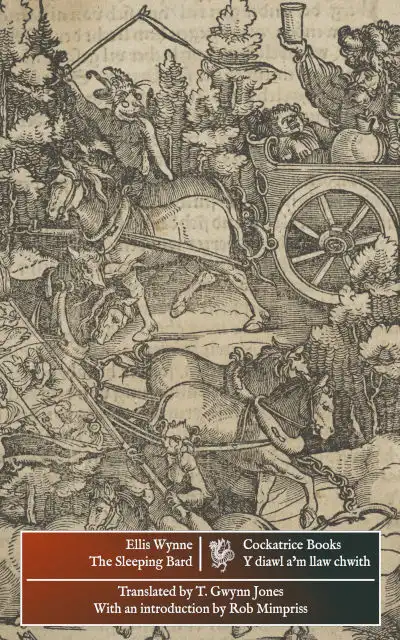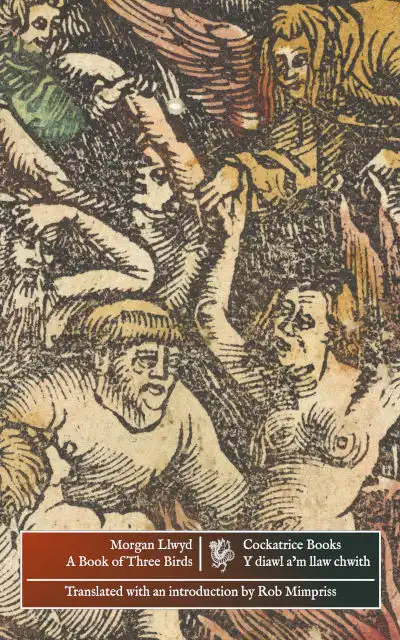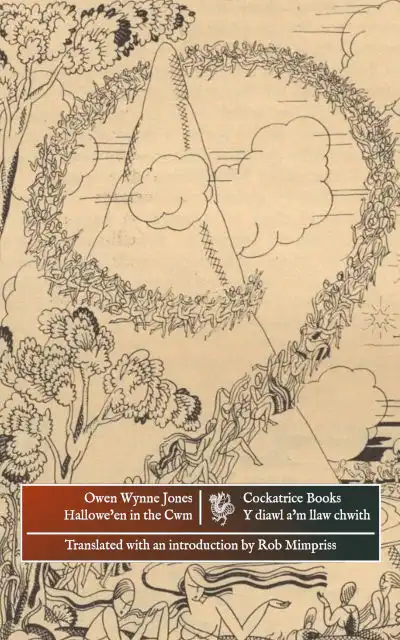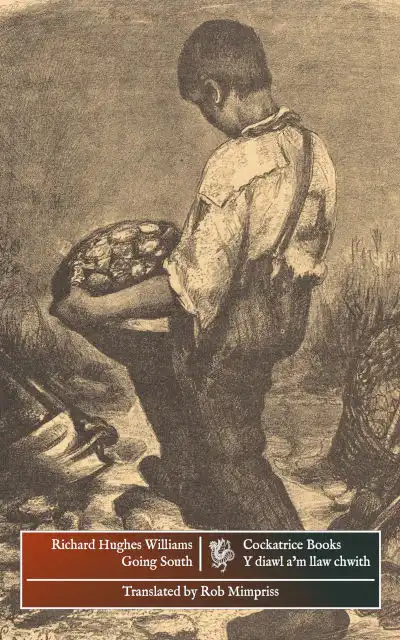Publisher: Multilingual Matters, 2007 | ISBN: 978-1847690197 | Format: 14.86x21cm paperback | Length: 200 pages | Price: £24.95 (RRP).
Edited by Graëme Harper and Jeri Kroll
Buy from Amazon
The chapters in this book range across all three areas of its subtitle – practice, research and pedagogy – testifying to the integrated nature of creative writing as a university discipline. Writers from the USA, the UK and Australia concentrate on the most critical issues facing this popular, fast-developing and sometimes embattled area of study: practice-led research in creative writing, the nature of higher degrees; the place of crtical/theoretical discourse in the discipline; the best teaching methods at undergraduate and postgraduate levels; and the challenge of creative writers who are also university teachers. These exciting essays chart creative writing’s evolution as a site of knowledge in the contemporary university.
’This is a great book, and perfect for anyone interested in creative writing - whether you're a creative writer teaching creative writing or you are a student creative writer This book is readable, thought-provoking and innovative. Wonderful!’
Liam Browne, novelist and Programme Director, Dublin Writers Festival; Books & Debate Programmer, Brighton Festival
The Ladies and the Baggage: Raymond Carver's Suppressed Research and the Apologetic Short Story
By Rob Mimpriss
‘We do not claim to rank among the military novelists. Our place is with the non-combatants. When the decks are cleared for action we go below and wait meekly. We should only be in the way of the manoeuvres that the gallant fellows are performing overhead. We shall go no farther with the —th than to the city gate: and leaving Major O’Dowd to his duty, come back to the Major’s wife, and the ladies and the baggage.’
– William Thackeray, Vanity Fair.
‘Fires’ and the Embarrassed Writer
In his autobiographical essay, ‘Fires,’ Raymond Carver blames his use of the short story on an accident of personal history. A father before he was twenty, struggling alongside his wife to earn a living despite his lack of education and skills, and forced in his free time to consider the needs and wishes of his children, Carver found he lacked the energy and will to invest in any longer narrative form. The attraction of the short story lay in rapid execution: a story could be finished in a day or two, ‘after [he] got in from work and before [he] lost interest,’ and it seems that ‘these ferocious years of parenting’ created a habit, a fearful need for immediate results, that subsequent leisure and critical endorsement were unable to break. Or this may be the reason he does not write novels; he thinks so.
The almost-insurmountable challenges of parenting and poverty to writing were famously predicted by Cyril Connolly in Enemies of Promise. It also seems that they commonly impel writers to the short story since the Welsh-language writer Kate Roberts (1891-1985) cites similar reasons for her use of the form. In an interview included by Saunders Lewis in his book, Crefft y Stori Fer, Roberts tells him that ‘Rhyw un peth yn dyfod ar draws y meddwl, a gweld deunydd stori yn hwnnw, ac efallai, meddwl nad oedd yn digon o amser i gynhyrchu nofel, petai’r syniad yn dyfod’ [‘Something comes to mind, and you see the material for a story in it, and perhaps you think there’s no time to produce a novel, even if it occurs to you’]. Later she adds that she doesn’t think she could write a long novel, ‘gan ei bod yn ormod trafferth ysgrifennu’r pethau llanw’ [‘since it would be too much trouble writing things in full’].
It is curious that these statements take the tone of apologies, since few novelists would seek to excuse their use of long narratives by an excess of wealth or leisure. As apologies they are also inappropriate to these two writers’ achievements, since their stories remain among the finest the form has yet produced. But one notices in both writers the guardedness of the explanation, the ‘perhaps,’ and one may suspect that more lies behind these writers’ choice of form than they are willing or able to say. Kate Roberts’s comments about craft and inspiration are hard to reconcile with the stories themselves, and Raymond Carver’s pedagogic essay, ‘On Writing,’ offers few original insights, consisting largely of slogans and quotations which he invites us to record on three-by-five cards.
Yet his first collection, Will You Please Be Quiet, Please?, is penetrating in its discussion of the short story and its significance. The heroine of the first story ‘Fat,’ describing a day at work to a friend, continues to nag at the hidden meaning of an encounter which her friends and husband tell her is unremarkable or comic: a hint from Carver, perhaps, as to the way we should nag at the hidden meanings of his stories. A character in ‘Put Yourself in My Shoes’ offers his friend the writer various anecdotes he hopes will provide the material for short stories, but the real story lies in the aggressiveness of his demands, the demands of the bad reader for the trite and embittered in short stories.
But perhaps ‘The Student’s Wife’ reveals most clearly Raymond Carver’s thinking about the short story form. For it is, very clearly, one of his most graceful designs: covering the hours between night and dawn, and with one major and one minor character, it nevertheless conveys a picture of their life together and a sense of the world they inhabit. Thematically it is one of Carver’s most far-reaching, for the protagonist’s solitude and insomnia, her fear of the sunrise, and the brevity and ambiguity of her prayer encourage us to read the story as an exploration of ontological suffering. But it is also thoughtfully modelled on a Chekhov story, ‘The Student,’ and the protagonist’s experiences recall the main themes in Frank O’Connor’s study of the short story form, The Lonely Voice. My burden in this chapter, presented by a detailed close reading of ‘The Student’s Wife,’ is that, rather than explaining or defending his use of an unpopular form through his critical or pedagogic writing, Carver – and other writers like him – may encode such an apologetic within his creative practice. Moreover, this apologetic could not otherwise be expressed without embarrassment, for it refers to the less considered aspects of O’Connor’s argument: to the experience of ‘religion [as] the aspect of depth in the totality of the human spirit’ to use Paul Tillich’s phrase, on his experience of religion as ‘ultimate concern’.
‘The Student’s Wife’ and the Writer as Apologist
When ‘The Student’s Wife’ begins, the student, Mike, is reading to Nan, his wife, from Rilke. Rilke is ‘a poet he admired’ and we are told that ‘he read well – a confident, sonorous voice’ that sends Nan into dreams of the Arabesque and exotic while he carries on reading aloud. It is when Mike stops to turn the light out that she feels unable to sleep. She is hungry, and asks him to make her a sandwich; she has pains in her shoulders, arms and legs; and she is afraid of being awake on her own. She tells him first about a dream, and then invites him to recall a fishing trip they took in the early years of their marriage, and she tries to persuade him to compare his likes and dislikes and aspirations with hers. She likes food, good books and travelling; she would like the money to buy new clothes for herself and the family; and she would like them to have ‘a place of their own’ so that they can ‘stop moving around every year.’ But Mike by this time is almost asleep, and when she asks him to reciprocate, he wishes only that she would leave him alone. Still awake after Mike has gone to sleep, she first prays that God will end her wakefulness, and then goes into the other room to look at magazines and to watch the sunrise The sunrise is remarkable, for we are told she had never realised ‘a sunrise was so terrible as this,’ and the prayer is also disturbing. For since her request to God to ‘please help us’ comes at the very end of the story, we will never know whether or not such help arrives, and nothing in the story makes us entirely sure what kind of help is being asked for. Even the pronoun ‘us’ is ambiguous, for it could refer to the woman and her husband, or to the couple and their children, or even to the whole human race.
Chekhov’s ‘The Student’ is somewhat different. Ivan Velikopolsky a theology student, is coming home on Good Friday after a day of shooting. The weather turns cold, and he remembers the suffering endured by Russians ‘in the days of Ryurik, Ivan the Terrible and Peter the Great.’ He stops to talk with two peasant women at their bonfire, listening to the older woman’s memories of her time as a wet nurse and nanny. But the cold and the fire inspire him to describe the events preceding the Passion, when the apostle Peter also warmed his hands at a fire before his denial of Christ. When Ivan leaves the women the older of the two is in tears, and this is not because of his ‘gift for poignant narrative,’ but because all human beings are linked through the unbroken chain of human history. Ivan has ‘touched one end’ of the chain, and the other has ‘vibrated,’ and he goes away affirmed in his humanity and confident in the goodness of the universe.
Between Chekhov’s story and Carver’s story one instantly feels a change in mood. For the allusions in Carver’s apologetic short story remind us of the honour and richness of his tradition, stretching back to the work of this older writer and achieving, through Chekhov and through Carver himself, equality with the dramatic and poetic traditions. But Chekhov’s story, through which Carver reminds us of this accomplishment, is itself a celebration of narrative, of stories passed down through memory and history in an experience as universal and timeless as the warming of hands by a fire – and Carver himself draws on such ancient narratives, modelling ‘Popular Mechanics’ on a story of Solomon. Writing short stories is no modern aberration, but neither is it mere repetition, and Carver, writing in a feminist and post-Christian age, reinterprets and reuses Ivan’s story-telling in ‘The Student’ to represent, not only the richness and antiquity of the short story tradition, but the manner in which that tradition is disregarded or suppressed.
At the start of Carver’s story Mike is reading to Nan from Rilke: a poet Carver himself may like, and may have come across at college as a key figure in European modernism. He therefore shares with Ivan a sense of culture and heritage, and a desire to pass on this advantage to others: on the fishing trip years ago (he too is a sportsman) he read to her from Browning and the Rubáiyát. Both men are skilful communicators, for Ivan provides a very vivid account of Christ’s arrest and Peter’s denial, and Mike’s reading of Rilke, ‘now pitched low and somber, now rising, now thrilling,’ penetrates Nan’s dreams. But this communication is always from man to woman, for Ivan is content that the women should be moved but stay silent, and Mike expects Nan first to listen and then to sleep.
The response of the peasant women to Peter’s denial of Christ suggests pity, but also repentance. Vasilisa is moved to tears, but hides her face with her sleeve ‘as if ashamed of the tears,’ while Lukerya blushes as she stares at the student, and her face becomes ‘distressed and tense as if she was holding back a terrible pain.’ If these women are aware that it is their sin, like Peter’s, that necessitated the scourging and crucifixion of Christ, if they feel that any sin committed in the light of this knowledge is also a deliberate betrayal of Christ, if they are moved to compassion by Peter’s agonised repentance and are afraid to sin as he sinned, then their responses are culturally and spiritually appropriate. Their silent devotion is also a Christian response, for one woman in the Gospels wets Christ’s feet with her tears whilst drying – or hiding – them with her hair, and traditionally it is the same woman who is silent before Christ when dragged before him as an adulteress. The same spirit is required of women by the Apostle Paul: to learn in quietness and full submission, and not to teach or have authority over a man, for it was Adam who was formed first, and then Eve.
The response of the peasant women to Ivan, in silence, blushes and tears, perhaps suggests the appreciative silence that Mike expects of Nan. But if so, the narrative of which Mike is a priest, the narrative of Browning, FitzGerald and Rilke, has lost the older narrative’s cohesive and emotive power. Devotion has given way to discourse, and where, in Chekhov’s story, communication ends, Nan produces a narrative of her own – plaintive, disjointed and inconsequential – consisting of a dream, a memory and a list of desires.
In Nan’s dream the two are staying at a small hotel by an unfamiliar lake, and since they are on holiday near water and there are no children with them, the dream recalls their earlier marriage as described in the memory that Nan then relates. In the dream, an older couple invite them out in their boat, and since the thwart will seat only three, Nan and Mike each claim for themselves the sacrifice of sitting in the stern. Nan wins the argument, but the cramped posture hurts her legs, and when she is afraid that the boat is being swamped, she wakes up. The dream has been assembled with Freudian realism, for the discomfort which Nan feels, cramped in the back of the boat, is the same discomfort she complains of to Mike when awake. But Nan and Mike’s friendly argument in her dream perhaps also recalls her memory of the fishing trip as an easier time in their marriage. Nan burnt the food and reused the same pan, and as the narrator tells us, ‘they could never get the coffee to boil, but it was one of the best times they ever had.’ It seems that physical discomfort has become harder to bear, and that at the same time they have become less supportive of each other. Mike has also forgotten the details of their holiday, remembering only ‘loud half-baked ideas about life and art’ which he has outgrown along with this intimacy.
Perhaps the time when Mike would have enjoyed bringing his wife a sandwich in bed, the time when life and art at least had relevance to each other, is what Nan spends that evening trying to restore; but perhaps she also wishes to discuss with Mike the daily burdens which she fears could swamp them. Among these would be her duties at the crèche or nursery with the younger children in the Woodlawn Apartments, the insecurity, felt also by Carver and his wife, of constantly changing accommodation and work, and of the shortage of money that keeps them in hardship and anxiety. All this is a reality that the Rubáiyát ignores, that Mike, perhaps, uses his studies to escape from, and which Ivan, though he knows it well, prefers to see transcended by the sufferings of the Russian people and the Passion of Christ.
But Nan’s reality also provides spiritual discoveries, and it is in these, rather than in culture’s great narratives that, in Carver’s apologetic short story, the short story should set up its home. Nan likes riding in trains at night and likes the times when she has flown, and there is a moment, when the aeroplane leaves the ground, when ‘you feel whatever happens is all right.’ With some sense of detachment from mundane things, or with some sublime acceptance of danger, Nan has apparently found relief from the worries that threaten to swamp her – a source of comfort that later in the story she addresses as God.
The Submerged Population and the Writer as Teacher
The image of swamping that occurs in Nan’s dream recalls one of the major themes in The Lonely Voice: the idea of the ‘submerged population’. For Frank O’Connor, the short story expresses the concerns of ‘the Little Man’, existing, like Akakey Akakeivitch in Gogol’s ‘The Overcoat,’ ‘on the [...] level of mediocrity’ and denied access to the privileges that society affords. The short story works best when its writer is in touch with the needs of such people, and speaks on their behalf and on his own. But the short story superimposes such figures – serfs, prostitutes and provincials – on those symbolic heroes, Socrates, Moses, the crucified Christ, and so presents a denial of the values of society and the novel. O’Connor’s argument in The Lonely Voice is one of which Carver, a graduate and teacher, will presumably be aware. Carver will also see himself as part of a submerged population, since his father was a sawmill worker and his mother a waitress, since he himself took unskilled and insecure jobs to support his young family, and since he experienced the utmost humiliation of circumstance that only the poor can know (Carver, 2002: 98). Yet subsequent education sets him apart from that sphere, just as under John Gardner he encounters ‘Conrad. Céline. Katherine Anne Porter. Isaac Babel’ (p. 111), Browning, FitzGerald and Rilke, and just as his first wife, the waitress and teacher, is replaced by Tess Gallagher, the writer.
If Carver has read The Lonely Voice he will know that the short story writer’s relationship with his source is intrinsically an unstable one. Katherine Mansfield, the leisured and wealthy expatriate, became too distant from ordinary life to represent it with conviction, and James Joyce, rather than depicting his submerged population with sympathy or even with fairness, by his pedantry and snobbishness submerged them further.. If Carver feels drawn away from his roots he may wonder what this means for his writing, and in his pedagogic short story he may embody the conflict he feels in himself in the student and the housewife, Mike and Nan.
But to be drawn away from one’s roots is to be lonely, and for O’Connor also the short story is marked by a loneliness from which the writer suffers and towards which he is drawn: Kate Roberts the widow also cites loneliness and isolation as influences on her work. But O’Connor also sees the short story as a visionary form, whose writer is aware of a universe extending far beyond the realm of human concerns: an idea he expresses with a quote from Pascal: ‘Le silence éternel de ces espaces infinis m’effraie.’ His insight is not fully clear to O’Connor, but perhaps the connection between the two themes is implicit. For Christ himself disposes blessings on ‘the poor in spirit’: those that mourn shall be comforted, those who are persecuted shall be rewarded in heaven, and the meek shall inherit the Earth. Likewise, in Varieties of Religions Experience, William James contrasts the ‘healthy-minded’, whose competence in mundane things renders them incapable of a cosmic vision and blind to the existence of evil, with those ‘sick souls’ who feel ‘the vanity of mortal things [...] the sense of sin [...] the fear of the universe.’ And in James’s view the sick souls possess true insight, since ‘morbid-mindedness ranges over the wider scale of experience,’ including those ‘evil facts’ which are ‘a genuine portion of reality.’ Nevertheless, this ability offers them membership of what O’Connor might also call a submerged population, since to the ‘healthy-minded’ their desires and fears are ‘unmanly and diseased.’
For Chekhov’s Ivan all evil is subsumed in good, and to Mike, who fits into the academy because he ‘reads well,’ his early vocation to art as a life now seems ‘loud[,] half-baked.’ He hopes to read to Nan from Rilke and then to sleep, but Nan annoys him by responding with her own creative discourse, with a dream, a memory and a list of desires. And if Browning, Rilke and the Rubáiyát, Russian history and the Passion of Christ, represent the mainstream tradition of literature as it is taught, whose champions, as Charles E. May insists, disregard its competitors, then the fragmentary and inconsequential nature of Nan’s discourse will remind us of the short story.
We see, in ‘Put Yourself in My Shoes’ and ‘Fat,’ that the suppression of the storyteller is a recurring theme in Carver’s fiction, before we begin to suspect that Carver himself is complicit in the suppressing. In one of Carver’s later stories, ‘Blackbird Pie’, the narrator, a historian with an impressive memory for facts, tries to make sense of the reasons why his wife left him. He is assisted by a letter which she pushed under his study door the night she left, and which recalls many details of their married life which only she could have known. But the narrator insists that the letter was not in her handwriting, and while he is able to quote long sections of it from memory, it transpires that he never finished reading it before it was destroyed.
According to Hilary Siebert, the contrast between historical facts and a mysterious letter represents a contrast between different forms of discourse. Furthermore, the kind of research required of the narrator is just what the short story often requires of its readers, who must ‘move from a world in which meaning is spelled out and documented to one in which meaning is felt and inferred.’ The narrator leaves the security of his study and his papers, moving ‘outside history’ into a foggy night where he finds her among the horses that have intruded on their land – horses and fog representing, for Siebert, the intuitive understanding that the short story form demands of the narrator and the reader.
The narrator’s longing to be reunited with the woman he loves forces the narrator to reconsider his understanding of the world. In this story then, the values that the short story itself represents achieve a partial victory. But in Carver’s stories such success is not so common. Ralph Wyman, the protagonist of ‘Will You Please Be Quiet, Please?’, an English teacher at a high school in Eureka, is obsessed with an incident that happened two years ago at a party, when he believes his wife, Marion, slept with another man. One evening, when she casually asks him if he ever thinks about the party, he starts to question her about it, and she is forced to admit that the man ‘did kiss [her] a few times.’ Marion is clearly uncomfortable, smiling uneasily as she makes this revelation, and preferring to discuss the dress she plans to buy for their daughter, and the French class she is teaching tomorrow. Resisting as well as she can Ralph’s insistence on knowing the facts, she finally confirms his suspicions. Ralph immediately leaves the house, returning in the morning when he dismisses her attempts to make peace with the instruction to ‘please be quiet, please’ – his earlier insistence that she speak, now, ironically, replaced by a demand for silence.
The Lonely Voice and the Writer as Critic
If Chekhov, in ‘The Student,’ considers the rewards of story-telling, its ability to unite the experience of the fisherman Peter with the experience of two peasant women, then perhaps in ‘The Student’s Wife’ Carver weighs the joy of continuing that tradition against the cost of practising a supposedly inferior form. For the stuff that forms Nan’s narrative to Mike, the fears and longings and deprivations that are also a large part of Carver’s fiction, is stuff that a reader of Rilke might ignore, and indeed Mike neither listens to her story nor matches it with his own. Public indifference and critical ignorance are the common fate of short story writers who, disowned by their submerged population, and disregarded outside it, find no one whom their work can address. As Andrew Levy points out, Bobbie Anne Mason, acclaimed and published in the New Yorker, is regarded as an embarrassment by her own people, who feel she makes them seem ‘too much like country people’; yet such public success as she enjoys can sometimes prove temporary. Kate Roberts, similarly acclaimed in her time, is now largely forgotten outside Wales, and read at home with an awareness of ‘the poverty and meanness’ of the world she describes, ‘its slow attrition of beauty, hope and vitality,’ and ‘the weakness of [her] vision’ that causes dark themes to predominate.
The heroine of ‘Blackbird Pie’ gains something from pushing a letter under a door; she entices her husband, who remembers facts, to join her with the fog and the horses. Marion, in ‘Will You Please Be Quiet, Please?’, loses something through her storytelling: although she pads her discourse with talk of lesson preparation and her daughter’s clothes, the talk of a submerged population, she is unable to avoid her final confession or her husband’s angry demand for her silence. In one scenario the story-teller is heeded, in another she is rejected; and Carver seems embarrassed by his devotion to the form, which he blames on poverty and its habits, which die hard.
Then what should be the content of Carver’s confession, and to whom should it be addressed? In ‘Fires’ and ‘On Writing’ he proclaims his membership of a submerged population, but in confessing his fear of infinite spaces or the sunrise he is cautious, admitting only that a writer should ‘have some special way of looking at things’, whereby, as in a story by Chekhov, ‘everything became clear to him.’ I don’t tell my students about being afraid of the universe; I tell them any rubbish but that.
O’Connor, in The Lonely Voice, sees to the heart of the short story writer’s predicament; but in his own short stories in My Oedipus Complex he is, despite the title, comparatively less revealing. His relationship with his characters maintains an ironic distance; it is not so close that it becomes embarrassing. Kate Roberts is honest, for she describes herself as ‘[d]ynes groendenau ofnadwy’ [‘a terribly thin-skinned woman’], struggling with bitterness, deeply hurt, and she adds that death gives the sudden insight one needs to understand a character, a society or life itself.
Nan perhaps speaks for us all. She likes flying on planes at night; there are moments when she suspects that ‘whatever happens is all right’. Her confession is met with Mike’s desire that she would leave him alone, but in this short story there is another room, and it is here that Nan retreats, to read magazines, to watch the sunrise, and to pray. But her prayer is not such that public religion could sanction, any more than Mike would consider her reading matter appropriate. For prayer should arise from constancy and faith or it will not be efficacious, and Christ’s own model prayer – reverent, penitent, interceding – is far more purposeful and practised than Nan’s. Rather, her almost-inarticulate cry grows selfishly and from fear ‘in one unreasonable’ and isolated ‘moment of longing.’
Without the authorisation of constancy and faith, dismissed by Nan herself as unreasonable, and offered without the support of the Church, her prayer comes to resemble her other discourses – plaintive, disjointed and inconsequential. But Nan prays, as Christ commands, ‘in secret,’ and the help for which she asks God is not for herself alone. If it is the merciful who may expect mercy, then presumably the helpful may expect help – so that Nan, who watches over and cares for her children, and who seeks intimacy with her husband as well as with God, perhaps prays worthily, and her prayer, the last sentence in the story, touches the eternity beyond its last page. Ignored by her husband, denied sleep by God, and submerged in the lowest forms of discourse, she speaks to us with a lonely voice – unconfessed and unheeded, like the short story, but perhaps, like the short story, significant.
Buy from Amazon



